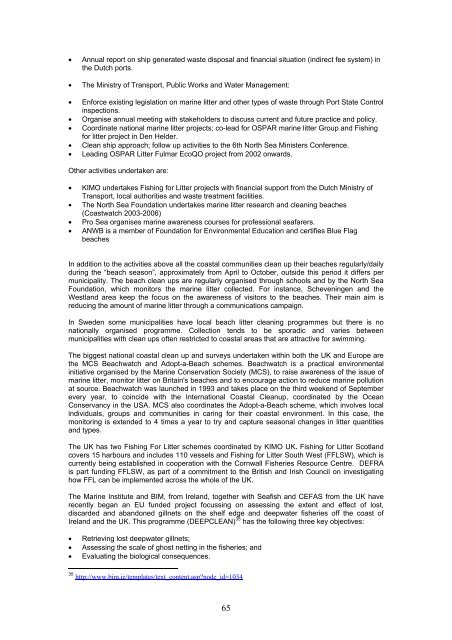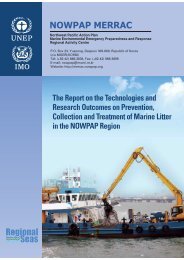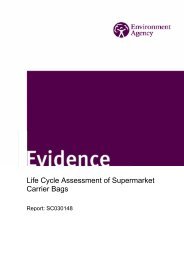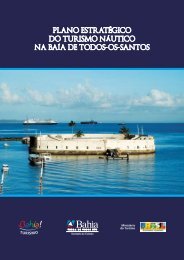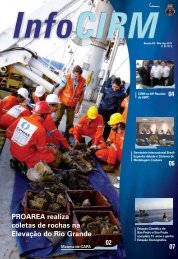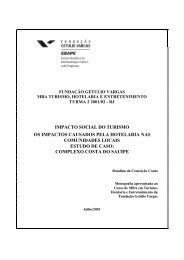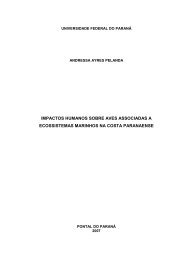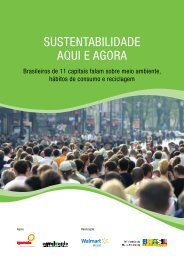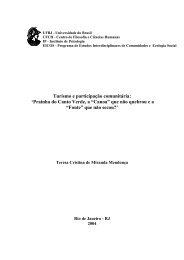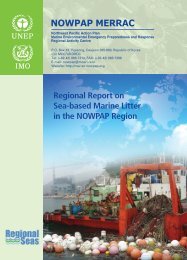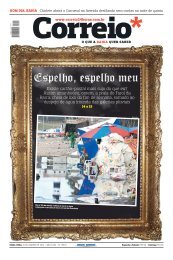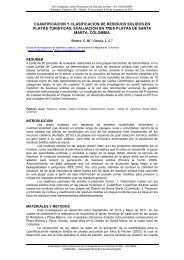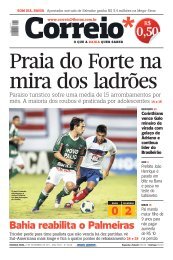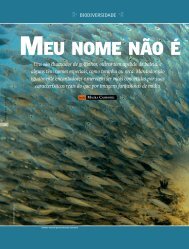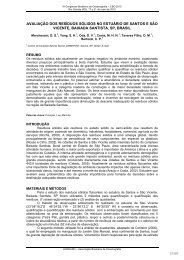view pdf - Seas At Risk
view pdf - Seas At Risk
view pdf - Seas At Risk
- No tags were found...
Create successful ePaper yourself
Turn your PDF publications into a flip-book with our unique Google optimized e-Paper software.
• Annual report on ship generated waste disposal and financial situation (indirect fee system) inthe Dutch ports.• The Ministry of Transport, Public Works and Water Management:• Enforce existing legislation on marine litter and other types of waste through Port State Controlinspections.• Organise annual meeting with stakeholders to discuss current and future practice and policy.• Coordinate national marine litter projects; co-lead for OSPAR marine litter Group and Fishingfor litter project in Den Helder.• Clean ship approach; follow up activities to the 6th North Sea Ministers Conference.• Leading OSPAR Litter Fulmar EcoQO project from 2002 onwards.Other activities undertaken are:• KIMO undertakes Fishing for Litter projects with financial support from the Dutch Ministry ofTransport, local authorities and waste treatment facilities.• The North Sea Foundation undertakes marine litter research and cleaning beaches(Coastwatch 2003-2006)• Pro Sea organises marine awareness courses for professional seafarers.• ANWB is a member of Foundation for Environmental Education and certifies Blue FlagbeachesIn addition to the activities above all the coastal communities clean up their beaches regularly/dailyduring the “beach season”, approximately from April to October, outside this period it differs permunicipality. The beach clean ups are regularly organised through schools and by the North SeaFoundation, which monitors the marine litter collected. For instance, Scheveningen and theWestland area keep the focus on the awareness of visitors to the beaches. Their main aim isreducing the amount of marine litter through a communications campaign.In Sweden some municipalities have local beach litter cleaning programmes but there is nonationally organised programme. Collection tends to be sporadic and varies betweenmunicipalities with clean ups often restricted to coastal areas that are attractive for swimming.The biggest national coastal clean up and surveys undertaken within both the UK and Europe arethe MCS Beachwatch and Adopt-a-Beach schemes. Beachwatch is a practical environmentalinitiative organised by the Marine Conservation Society (MCS), to raise awareness of the issue ofmarine litter, monitor litter on Britain's beaches and to encourage action to reduce marine pollutionat source. Beachwatch was launched in 1993 and takes place on the third weekend of Septemberevery year, to coincide with the International Coastal Cleanup, coordinated by the OceanConservancy in the USA. MCS also coordinates the Adopt-a-Beach scheme, which involves localindividuals, groups and communities in caring for their coastal environment. In this case, themonitoring is extended to 4 times a year to try and capture seasonal changes in litter quantitiesand types.The UK has two Fishing For Litter schemes coordinated by KIMO UK. Fishing for Litter Scotlandcovers 15 harbours and includes 110 vessels and Fishing for Litter South West (FFLSW), which iscurrently being established in cooperation with the Cornwall Fisheries Resource Centre. DEFRAis part funding FFLSW, as part of a commitment to the British and Irish Council on investigatinghow FFL can be implemented across the whole of the UK.The Marine Institute and BIM, from Ireland, together with Seafish and CEFAS from the UK haverecently began an EU funded project focussing on assessing the extent and effect of lost,discarded and abandoned gillnets on the shelf edge and deepwater fisheries off the coast ofIreland and the UK. This programme (DEEPCLEAN) 35 has the following three key objectives:• Retrieving lost deepwater gillnets;• Assessing the scale of ghost netting in the fisheries; and• Evaluating the biological consequences.35 http://www.bim.ie/templates/text_content.asp?node_id=103465


